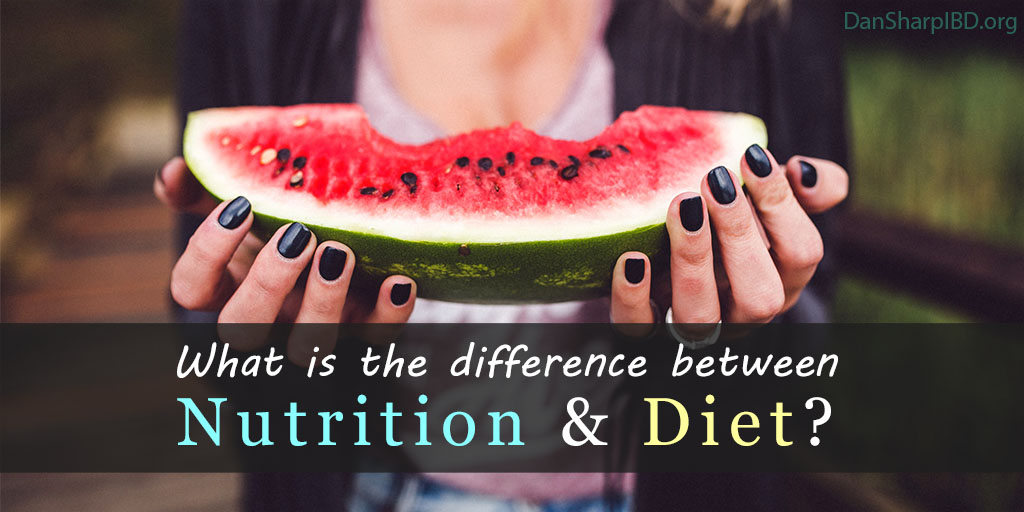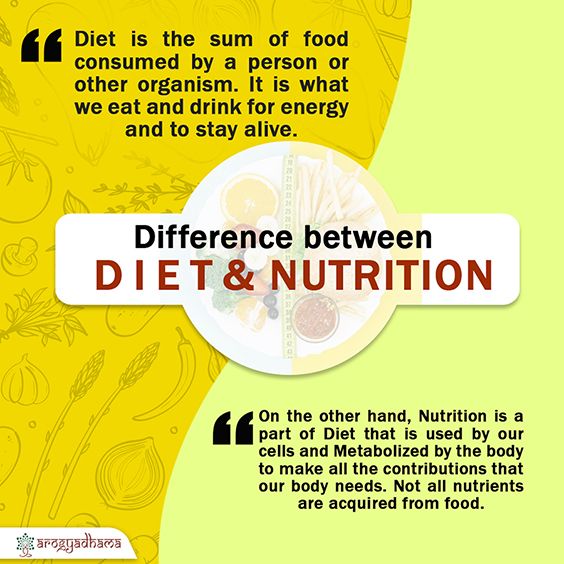Hey there, folks! Today, we’re going to dive into a topic that often gets confused: the difference between diet and nutrition. You’ve probably heard these terms thrown around a lot, especially when it comes to health and wellness, but do you really know what sets them apart? Well, fear not! I’m here to break it down for you in a fun and engaging way.
Let’s start by clarifying the terms. Diet refers to the specific foods and drinks a person consumes on a regular basis. It’s all about what you put on your plate (or in your glass!) and the choices you make when it comes to nourishing your body. On the other hand, nutrition is the science behind those food choices. It focuses on the nutrients found in various foods and how they affect our bodies, from providing energy and supporting growth to preventing diseases and promoting overall well-being.
Now, you might be wondering, why does this distinction even matter? Well, understanding the difference between diet and nutrition can help you make more informed choices when it comes to your health. By knowing which nutrients your body needs and how to obtain them through a well-balanced diet, you can optimize your overall nutrition and set yourself on a path to a healthier lifestyle. So, let’s dig deeper and uncover the fascinating world of diet and nutrition together!


Understanding the Difference Between Diet and Nutrition
Diet and nutrition are two terms that are often used interchangeably, but they actually have different meanings. While both are related to the food we eat and the impact it has on our health, they focus on different aspects of our overall well-being. In this article, we will explore the key differences between diet and nutrition and how they contribute to our overall health and wellness.
What is Diet?
When we talk about diet, we are referring to the specific foods and drinks that a person consumes on a regular basis. It is the combination of all the food choices we make throughout the day, week, and month. Our diet is influenced by factors such as culture, availability of food, personal preferences, and dietary restrictions.
A healthy diet is essential for maintaining good health and preventing chronic diseases. It should include a variety of nutrient-dense foods such as fruits, vegetables, whole grains, lean proteins, and healthy fats. A balanced diet provides the necessary nutrients, vitamins, and minerals that our body needs to function optimally.
Components of a Healthy Diet
A healthy diet consists of various components that work together to promote overall well-being. These components include:
1. Macronutrients: These are the nutrients that our body needs in large quantities, including carbohydrates, proteins, and fats. They provide energy and are essential for growth, repair, and maintenance of body tissues.
2. Micronutrients: These are the nutrients that our body needs in smaller quantities, including vitamins and minerals. They play a crucial role in various bodily functions, such as immune function, bone health, and energy production.
3. Fiber: Fiber is a type of carbohydrate that is not digested by our body. It helps regulate digestion, prevent constipation, and lower the risk of certain diseases, such as heart disease and diabetes.
4. Hydration: Staying hydrated is an important part of a healthy diet. Water is essential for various bodily functions, including temperature regulation, digestion, and nutrient transport.
What is Nutrition?
Nutrition, on the other hand, refers to the process by which our body utilizes the nutrients from the food we eat. It involves the digestion, absorption, transport, and utilization of these nutrients to support various bodily functions. Nutrition is about how our body metabolizes and utilizes the nutrients present in our diet.
Good nutrition is crucial for overall health and well-being. It provides our body with the necessary nutrients to support growth, repair, and maintenance of body tissues. It also helps regulate bodily functions, such as metabolism, immune function, and hormone production.
The Role of Nutrition in Health
Nutrition plays a vital role in maintaining optimal health. It affects various aspects of our well-being, including:
1. Growth and Development: Proper nutrition is essential for children and adolescents to support their growth and development. It provides the necessary nutrients for bone growth, brain development, and overall physical growth.
2. Disease Prevention: A healthy diet and proper nutrition can help prevent chronic diseases such as heart disease, diabetes, and certain types of cancer. Nutrients like antioxidants and fiber have been shown to reduce the risk of these diseases.
3. Energy Production: The nutrients from our diet are converted into energy through various metabolic processes. Good nutrition ensures that our body has enough energy to carry out daily activities and perform physical exercise.
4. Immune Function: Proper nutrition is vital for a strong immune system. Nutrients like vitamins A, C, and E, as well as zinc and selenium, play a crucial role in supporting immune function and protecting against infections.
In summary, diet and nutrition are interconnected but distinct concepts. Diet refers to the foods and drinks we consume, while nutrition focuses on how our body processes and utilizes the nutrients from our diet. Both diet and nutrition are essential for maintaining good health and overall well-being. By making informed food choices and ensuring proper nutrition, we can optimize our health and live a balanced lifestyle.
Key Takeaways: What Is the Difference Between Diet and Nutrition?
- Diet refers to the specific food choices and patterns that an individual follows for weight management or health goals.
- Nutrition, on the other hand, focuses on the overall nutrient content and quality of the food consumed.
- Diet is more short-term and temporary, while nutrition is a long-term approach to nourishing the body.
- A healthy diet should include a variety of nutrient-rich foods to meet the body’s nutritional needs.
- Understanding the difference between diet and nutrition is essential for making informed choices about what we eat.
Frequently Asked Questions
What is the difference between diet and nutrition?
Many people often confuse the terms “diet” and “nutrition,” but they actually have different meanings. Diet refers to the specific foods and drinks that a person consumes on a regular basis, while nutrition encompasses the nutrients and substances that these foods provide to the body.
While diet focuses on the quantity and quality of food intake, nutrition looks at the impact of these foods on the body’s overall health and well-being. Nutrition considers the essential nutrients, such as carbohydrates, proteins, fats, vitamins, and minerals, that are necessary for the body to function optimally.
How does diet affect nutrition?
The diet we follow plays a crucial role in determining our overall nutrition. A healthy diet that includes a variety of nutrient-dense foods can provide the body with the necessary vitamins, minerals, and other essential nutrients it needs to function properly. On the other hand, a poor diet that is high in processed foods, sugars, and unhealthy fats can lead to nutrient deficiencies and negatively impact our health.
By making conscious choices about the foods we consume, we can ensure that our diet supports our nutritional needs. It is important to focus on whole, unprocessed foods like fruits, vegetables, lean proteins, whole grains, and healthy fats to optimize nutrition and promote overall well-being.
Can you have a healthy diet without proper nutrition?
No, it is not possible to have a healthy diet without proper nutrition. A healthy diet is one that provides the body with all the necessary nutrients it needs to function optimally. Without proper nutrition, even if we consume a wide variety of foods, our body may still lack essential vitamins, minerals, and other nutrients.
For example, someone may have a diet that consists mainly of low-calorie processed foods, which may result in weight loss but can lead to deficiencies in important nutrients. To have a truly healthy diet, it is essential to focus not only on calorie intake but also on the nutritional value of the foods we consume.
What role does nutrition play in overall health?
Nutrition plays a vital role in overall health and well-being. The nutrients we obtain from food are essential for various bodily functions, including energy production, growth and development, immune function, and disease prevention. Proper nutrition can help reduce the risk of chronic diseases such as heart disease, diabetes, and certain cancers.
Additionally, nutrition is important for maintaining a healthy weight and managing weight-related issues. A balanced and nutritious diet can support cognitive function, improve mood, enhance digestion, and promote healthy aging. Therefore, paying attention to nutrition is crucial for maintaining optimal health throughout life.
How can someone improve their diet and nutrition?
Improving diet and nutrition is a gradual process that involves making conscious choices and adopting healthy habits. Here are a few tips to enhance diet and nutrition:
1. Eat a variety of nutrient-dense foods, including fruits, vegetables, whole grains, lean proteins, and healthy fats.
2. Limit the consumption of processed foods, sugary drinks, and unhealthy fats.
3. Stay properly hydrated by drinking an adequate amount of water throughout the day.
4. Practice portion control to ensure a balanced intake of nutrients.
5. Seek guidance from a registered dietitian or nutritionist for personalized advice and meal planning.
Remember, small changes made consistently over time can have a significant impact on improving your diet and nutrition for better overall health.


What is the Difference Between Diet, Nutrition, and Dieting? Steps to Improve Your Health
Final Summary: Understanding the Distinction Between Diet and Nutrition
Now that we’ve delved into the topic of diet and nutrition, it’s clear that there is a significant difference between the two. While diet refers to the specific foods and beverages we consume on a daily basis, nutrition encompasses the broader concept of how these nutrients affect our overall health and well-being. It’s important to recognize that diet alone does not guarantee optimal nutrition, as the quality and balance of the foods we eat play a crucial role.
When it comes to achieving good nutrition, it’s not just about counting calories or following the latest fad diet. Instead, it’s about nourishing our bodies with a variety of nutrient-dense foods that provide the essential vitamins, minerals, and macronutrients we need to thrive. This means focusing on whole foods like fruits, vegetables, lean proteins, whole grains, and healthy fats. By prioritizing nutrition rather than solely focusing on restrictive diets, we can create a sustainable and enjoyable approach to eating that supports our long-term health goals.
In conclusion, while diet and nutrition may be closely related, they are distinct concepts that require our attention. By understanding the difference and prioritizing nutrition, we can make informed choices about the foods we consume and create a healthy and balanced lifestyle. So, let’s embrace the power of nutrition and nourish our bodies for optimal well-being.

